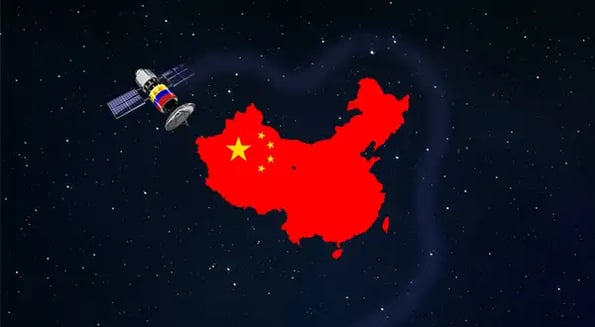China launched 2 new satellites into its Beidou satellite navigation network last week, part of a $9B plan to eliminate Chinese dependence on US-owned Global Positioning System (GPS).

When Beidou is complete in 2020, China’s navigation needs will no longer require American space junk — and other countries are taking notice.
Wait — the US government owns GPS?
Yep. The US Department of Defense first launched GPS satellites in 1978 during the Cold War and made the system public for civilian use across the globe in 1983.
Since then, the GPS system has been the default system for nearly all commercial applications across the world (a market expected to reach $146.4B by 2025).
But, satellite positioning systems have become increasingly important to self-driving cars and location-aware smartphone apps, causing China and other countries to second-guess their reliance on American satellites.
It’s not all about the money
Since America’s globe-spanning GPS system is freely available, China won’t directly save any money. But, since the US government still controls the system, it can also selectively deny access to it.
Baidou will allow China to act without fear of an angry US Air Force turning off maps in Chinese smartphones.
Plus, China’s shiny new positioning system will be an economic boon down the road: The China Satellite Navigation Office expects Beidou to generate $57.6B dollars in revenue in 2020.
OK, so maybe it is mostly about the money, after all…
The new space race may come down to the millimeter
If China’s system is more accurate than GPS, as is widely claimed, GPS’ monopoly on geography will most likely come to an end.
Some companies are already rolling out the welcome mats for the new system: NavInfo, a Beijing chipmaker that supplies Tesla and BMW, already projects demand of 15m Beidou-linked chips annually.
But China isn’t the only country that wants geo-independence from GPS: Russia is investing in improvements to its Cold War-era GLONASS system, and the EU is building out its global location network called Galileo that’s expected to be fully operation in 2020.
